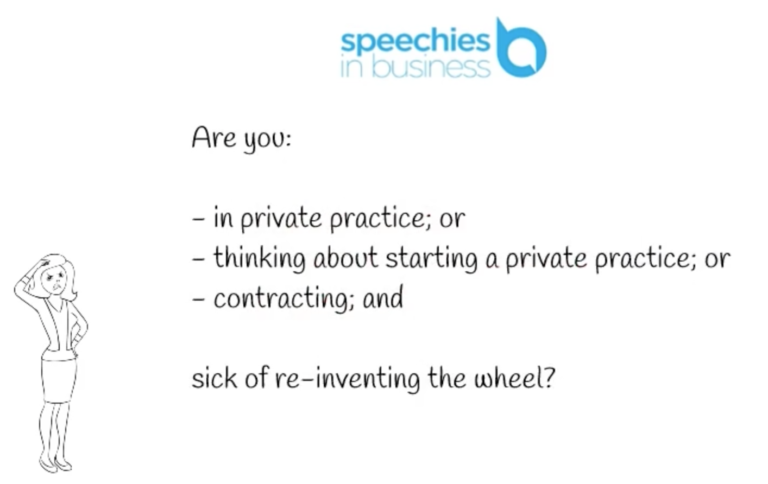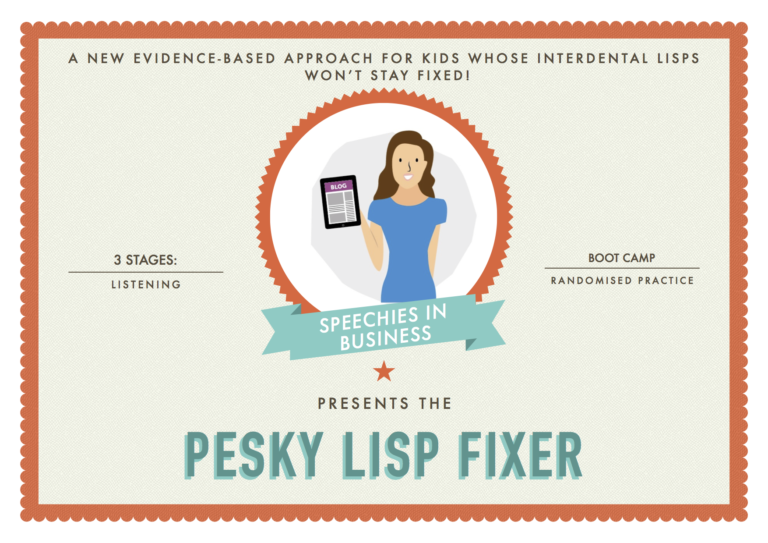Australian Speech Pathologists: Ethical Employment Practices 101
I’m an optimist when it comes to the future of the speech pathology profession. But I’m also a realist.
A. Supply > demand = exploitation?
Although I remain bullish about the long-term prospects of the profession, I agree with many colleagues who think that the current supply of speech pathologists is out of whack with demand in Australia in some areas of practice. For speech pathologists seeking a job in a capital city, the risk of exploitation is real – particularly for new graduates in private practice. As a lawyer, I’ve seen it in some of the cases that come across my desk.
Speech pathology employers face a slew of legal risks in this market, too, particularly when dealing with some of the less clear-cut legal issues. Risks range from civil employee claims to criminal prosecutions, from financial strain to bankruptcy and loss of practising rights.
Some legal risks are unavoidable in business. Others are caused by a lack of knowledge about legal responsibilities or compliance systems to manage them. As with every profession, there are probably also some hirers out there engaged in what I would politely call “questionable practices”. (More on that later.)
B. Duty to be informed
In the current job market, knowing your legal rights as an employee is essential. On the employer side, you need to know this stuff if you want to protect your reputation and stay in business: ignorance of the law is no defence if a regulator comes knocking or you get sued.
So here are some employment law basics that everyone in private practice in Australia should know about. None of what follows is intended to be legal advice. But it is intended to alert you to some of the main issues you need to think about when hiring, or being hired as, an employed speech pathologist in private practice in Australia.
C. Key things you should know
1. Legislation
Australian employment arrangements are subject to the Fair Work Act 2009 (Cth).
2. Award
The modern national award for speech pathology employees in private practice is the Health Professionals and Support Services Award 2020 (MA000027). Read it. It takes 20 minutes. If you are a graduate:
- you are a “Health Professional employee – level 1″ for the purposes of the Award;
- if you have a Masters degree, you should be paid at least at pay point 4 (currently $1032.90 per week full-time); and
- if you have a 4-year Bachelors degree, you should be paid at least at pay point 3 (currently $998.40 per week full-time).
These are the rates current as at 1 July 2020.
In addition to minimum wages, the Award covers types of employment (full time, part time, casual), ordinary hours, leave, allowances (such as travel allowance, currently $0.80 a kilometre), termination of employment, redundancy and dispute resolution.
3. Minimum employment standards
Speech pathology employment arrangements are subject to the 10 minimum National Employment Standards covering things like annual leave, long service leave and redundancy pay. Read more about these important topics via the Fair Work Ombudsman:
4. Income tax and PAYG
Employed speech pathologists earn salary and wages that are subject to income tax under the Income Tax Assessment Act of 1997 (Cth) and the Income Tax Assessment Act of 1936 (Cth). This tax is withheld from employees and “paid as you go” (PAYG) by employers on their behalf. You can read more about PAYG here.
5. Superannuation contributions
In addition to employee salaries, employers must make superannuation payments for employees under the Superannuation Guarantee (Administration) Act 1992 (Cth). Currently, these superannuation contributions are equal to 9.50% of an employee’s salary and wages. You can calculate superannuation contributions here.
6. Employment Contracts – key things to look out for and to seek advice on
Before signing up, read your draft employment contract carefully. Unfortunately, as we’ve lamented elsewhere, many of the precedent speech pathology contracts floating around are littered with serious errors. Some contain very outdated references. Some contain straight-out illegal terms.
At a minimum, make sure your contract refers to the correct Award (including pay point), the National Employment Standards and the Fair Work Act 2009 (Cth). Make sure you are being hired as a speech pathologist (seems obvious, but be wary of titles like “consultant” or “advisor”, and especially “assistant” or “support worker”).
Watch out for:
- overly long probation periods – probation periods should not be longer than six months – and provisions that seek to claw back expenses or costs if an employee is terminated at or before the end of the probation period;
- clauses that seek to restrict what paid work you can do for others while you are employed;
- clauses that seek to restrict:
- where you can work; and/or
- what kinds or work you can do,
if/when you leave (I’ve seen some pretty broad restraint of trade clauses out there in the market);
- clauses that purport to restrict your ability to start your own practice if you leave;
- minimum numbers of clients you must see every day, especially if the number is disproportionate to your experience levels to do the job ethically; and
- clauses that purport to make your pay conditional, e.g. on the employer first getting paid by a client or third party.
Prospective employees should also be aware of their key duties to the employer, e.g. to co-operate, to use care and skill, to act with fidelity and good faith (e.g. not to steal business, make secret profits on the side, seek to entice other staff away, not to disclose confidential information to others, not to assert ownership rights over the employer’s intellectual property). A solid written employment contract will deal with many of these terms, but Courts sometimes imply these terms when the contract is silent (or not written down).
7. Sham contracting arrangements – pretending an employee is an “independent contractor”
This is a big topic and warrants a couple of articles on its own.
In short, hiring independent contractors is a common practice for speech pathologists. It’s usually cheaper for hirers because they don’t have to pay employee entitlements (like leave) or make superannuation contributions or pay PAYG tax instalments. It can also be more flexible for the workers who can work for different hirers and do different kinds of work.
Some of the independent contracting arrangements I see out in the market are, in reality, poorly disguised employment arrangements. It’s a grey area in some cases – the principles are clear, but the application can be tricky. But the legal risks of getting it wrong fall mostly on the hirer/employer. For example:
- a disgruntled contractor may sue a business claiming he/she is an employee entitled to annual leave and other employee entitlements;
- Fair Work Australia may fine a business for entering into a “sham” arrangement, i.e. alleging the ’employer’ attempted to disguise an employment relationship as an independent contracting arrangement to avoid responsibility for employee entitlements; and/or
- the Australian Taxation Office (ATO) may audit and then prosecute the business (and sometimes its owners), e.g. for failing to withhold ’employee’ income and other taxes as required for employees.
If you don’t know much about this important issue, start with these resources:
- Fair Work Ombudsman: Contractors and employees – what’s the difference?
- Fair Work Ombudsman: Sham Contracting Arrangements
- ATO: Employee/Contractor Decision Tool
- ATO: Difference between Employees and Contractors
- ATO: Employee or contractor – Myths and facts
If you’re still not sure, seek legal advice before signing up.
8. “Volunteers” doing speech pathology work
This another area of controversy – and one where I hold strong views. Here, I’m not talking about students on placements, which are usually classed as “Vocational Placements” for the purposes of the Fair Work Act and are thus legal.
I’m talking about speech pathology graduates and other speech pathologists being given the “opportunity” to do volunteer work for other speech pathologists, e.g. to overcome a “lack of experience” hurdle. These are sometimes very informal arrangements, with nothing in writing. Other times, they are structured as an “unpaid trial” or “unpaid internships” offering alleged perks like free training, networking opportunities and training.
Spoiler alert: I think many “volunteer arrangements” are legally questionable and should be stamped out.
The Fair Work Ombudsman makes it clear that true volunteers:
- must not do “productive work” – this would, in my view, clearly capture providing speech pathology services for money and would probably apply to doing free screeners too if they are part of an initiative to generate business for a private practice hirer (which they almost always are);
- should be the main beneficiaries of the arrangement; and
- must receive a meaningful learning experience, training or skills development from the position.
Otherwise, there’s a good risk that the “volunteer” is, in reality, an employee and entitled to be paid accordingly. Again, the main legal/economic risks of getting this wrong is on the hirer, although the short-term damage of engaging in dodgy volunteer “hiring” of course hits the volunteers too, with collateral damage to the profession’s reputation.
In my view, short-term, purely observation/shadowing arrangements might be okay, provided the volunteer learns a lot and isn’t expected to do anything productive. But, if the “volunteer” is expected to engage in speech pathology-related professional work to benefit the hirer, the volunteer might have good grounds down the track to make a claim against the hirer for unpaid wages and entitlements (and interest) as an employee – especially if the volunteer comes away from the “opportunity” less than impressed or feeling exploited.
You can read more about unpaid work arrangements here. For members of Speech Pathology Australia, there is a Position Statement on Volunteering in Speech Pathology (behind the members’ wall), which binds members. But the Position Statement is arguably more permissive than employment laws, and remember that your legal obligations come first.
Bottom line
There’s lots of speech pathologists around, especially in big cities, and more competition between private practices than ever before. This makes it hard to land a job; and puts business pressure on private practices to hire efficiently. If we want to avoid a race to the bottom, we must uphold good hiring practices; and, to do that, we need to know our basic employment rights and responsibilities. I hope that this overview was a useful start for some of you pursuing this goal, though you should seek legal advice particular to your own situation before doing (or not doing) something related to any of the topics touched on above.
Just as a nation’s greatness is measured by how it treats its weakest members*, a profession’s greatness is measured by how it treats its new graduates and other vulnerable members. As a profession, we’re good at helping our clients. But we need to help each other, too. A good start is to ensure we meet – and preferably exceed – our employment law responsibilities.
*Quotation: Mahatma Gandhi.
Image: https://tinyurl.com/hfafrtz







